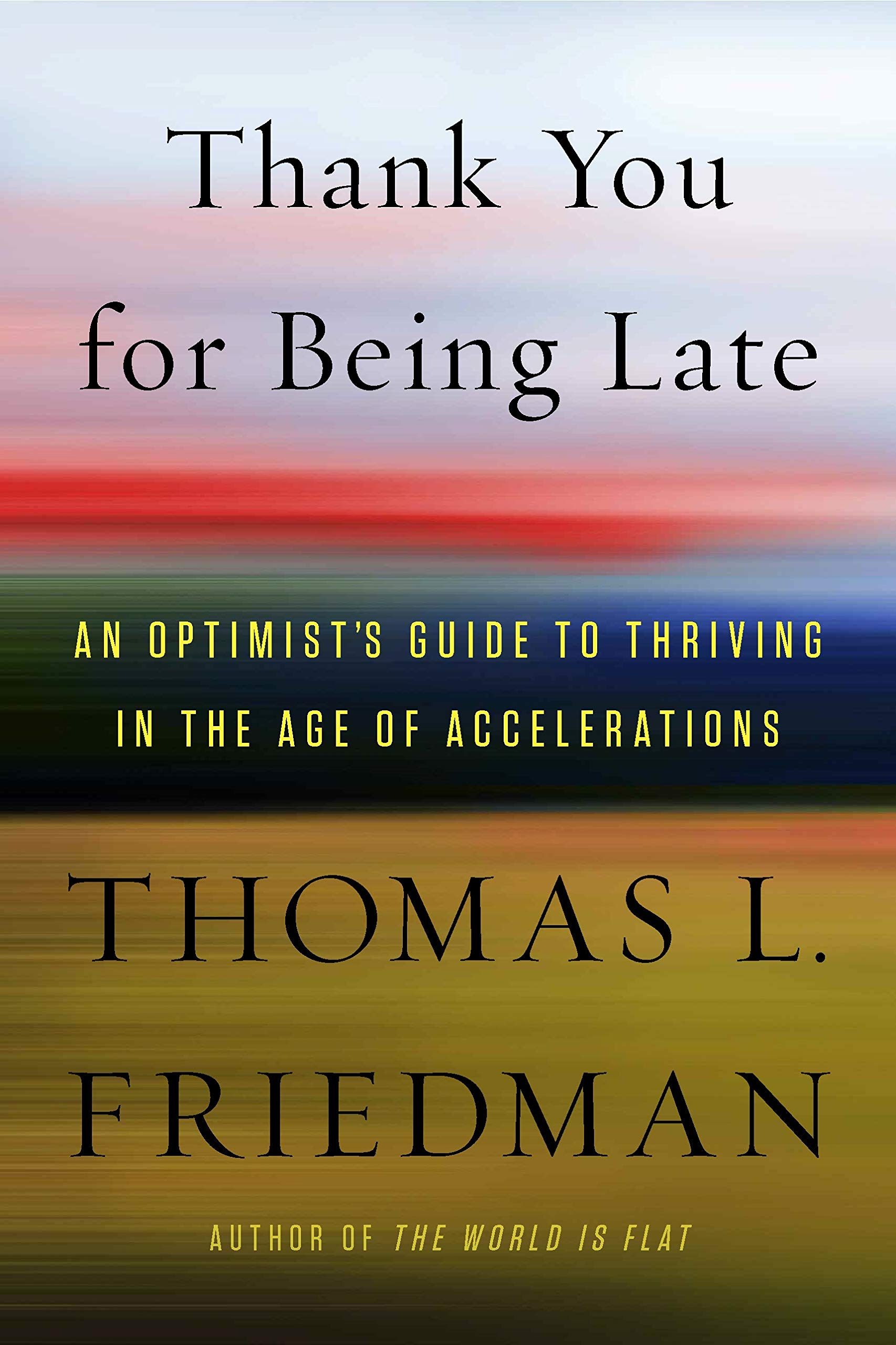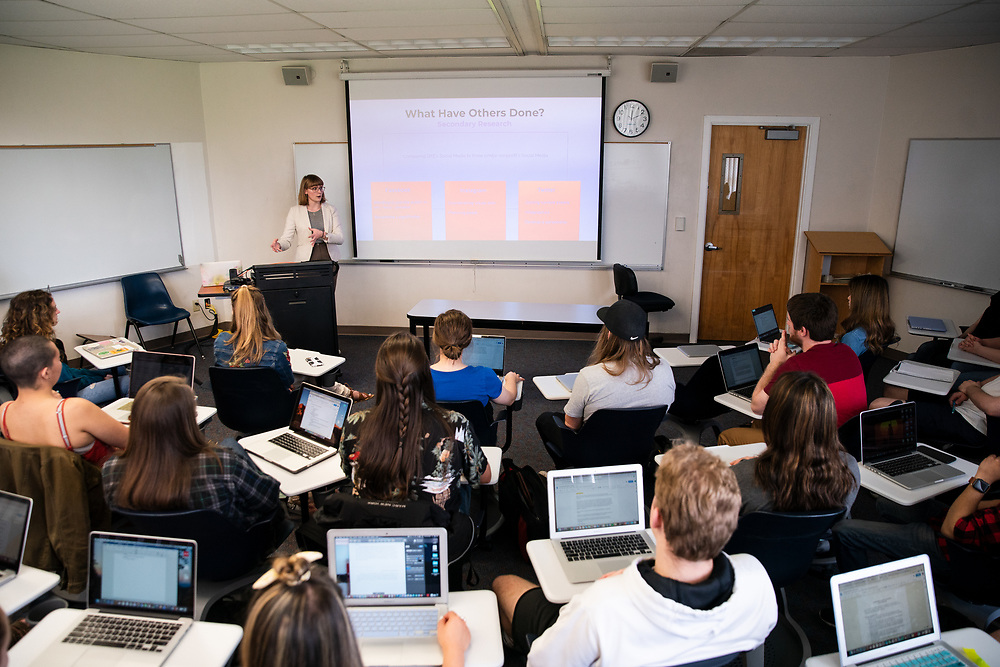The Age of Acceleration
March 07, 2023

Economic and cultural change is an ever-present part of human life. Levi Pennington, the longest serving president in the history of George Fox University, once ruminated on change in his time:
“Living in the midst of this change (World War II, the Great Depression), as we do, it is difficult for us to realize how great have been the changes even since the beginning of the 20th century. Riding in the train – they say it is still more emphatically true if one is riding in an airplane, but I wouldn’t know – one needs to look out at the passing landscape to realize the speed of travel. The auto, the airplane, the radio, the thousand domestic uses of electricity, air-conditioning – why go on? – have made our outward world a very different one from that of our own boyhood – or girlhood, though that is naturally not so far back, whatever the calendar may say."
 Every age faces technological, economic and cultural shifts. I recently completed a book called Thank You for Being Late by Thomas Friedman. In it, the author explores the impact of technology and globalization on the modern world. He persuasively suggests that, based on observation of Moore’s Law, we are in the age of acceleration. Change is occurring so rapidly that the institutions of culture – education, church and government – can't keep up with the pace of change and therefore leave most of us dislocated, or in other words, unable to adapt. At the core of this technological shift in the past two years has been the emergence of artificial intelligence made available to the public as ChatGPT. Essentially, machines are now capable of providing vast summaries of expert information in written form within seconds. I know, I am skeptical as well.
Every age faces technological, economic and cultural shifts. I recently completed a book called Thank You for Being Late by Thomas Friedman. In it, the author explores the impact of technology and globalization on the modern world. He persuasively suggests that, based on observation of Moore’s Law, we are in the age of acceleration. Change is occurring so rapidly that the institutions of culture – education, church and government – can't keep up with the pace of change and therefore leave most of us dislocated, or in other words, unable to adapt. At the core of this technological shift in the past two years has been the emergence of artificial intelligence made available to the public as ChatGPT. Essentially, machines are now capable of providing vast summaries of expert information in written form within seconds. I know, I am skeptical as well.
 I took time recently to meet with long-time friend and innovation guru Mohan Nair. It was a normal conversation between two friends until he asked me what trends were troubling me. I mentioned the emergence of AI as a new technology in our society that might soon affect education. Since he had spent the last 30 years working in that industry, he invited me to explore ChatGPT together and we did.
I took time recently to meet with long-time friend and innovation guru Mohan Nair. It was a normal conversation between two friends until he asked me what trends were troubling me. I mentioned the emergence of AI as a new technology in our society that might soon affect education. Since he had spent the last 30 years working in that industry, he invited me to explore ChatGPT together and we did.
In February, I spoke in chapel on faithfulness and used several stories from the Bible to illustrate people who were faithful. In Mark chapter 7, there is one story that is challenging – you may know it. I read numerous commentaries and even dialogued with our own theology professor Dr. Sunggu Yang to get a sense of the purpose of the story. Those processes took several hours. However, when I submitted the story to ChatGPT for an explanation, I got the following response in eight seconds:
In the Christian New Testament, in the Gospel of Mark chapter 7, Jesus encounters a Gentile woman trying to ask for help. In response to her request, Jesus says, “It is not right to take the children's bread and toss it to the dogs.” To the woman's surprise, Jesus is referring to her. "Yes, Lord," she said, "but even the dogs under the table feed on the children's crumbs." Jesus then heals the woman’s daughter.
By comparing the woman to a dog, Jesus is not suggesting that she is of lesser worth or deserving of less dignity than a human. Instead, Jesus demonstrates an important lesson about the Kingdom of God. He is showing that God’s mercy and grace is available to all people, regardless of their racial or cultural backgrounds. By calling the woman a “dog”, Jesus is showing us that it is not our place to judge and that everyone can be welcomed into the arms of God.
Ultimately, Jesus was speaking to the woman in a way that was both humbling and empowering. By calling her a dog He communicated the message that she was still loved and valued, even as an outsider to religious culture of the time. It showed that Jesus does not judge people by their differences, but instead looks at them as worthy of being taken care of and has compassion and grace for all.
I have to admit I was quite surprised. The global technological environment is not particularly religious, but the “machine” only took seconds to provide an effective response, one that I similarly came to after long thought. The frightening thing is that the machine will only be better and faster next year.
How can we apply the concepts found in Friedman's book to Christian colleges like George Fox? I asked ChatGPT that question and it responded with these five key learnings:
- The importance of adaptability and flexibility in the face of rapid change.
- The need for institutions to be proactive in embracing new technologies and teaching methods in order to stay relevant and competitive.
- The potential for private religious colleges to serve as a sanctuary from the rapid pace of change, providing a sense of stability and tradition in an increasingly uncertain world.
- The importance of interdisciplinary approach and collaboration in order to address the complex challenges of the modern world.
- The need for a strong sense of purpose and mission in order to guide an institution through difficult times.
 What will the future be like? Clearly, methods of learning will significantly change in the next few years, and there will be rapid change in universities. Our success will remain in our ability to be flexible and to innovate in the face of changing technologies. At the same time, ChatGPT also got it right in suggesting that our strong sense of purpose and mission will be essential in guiding us through difficult times. As it did during the time of Pennington, our Christ-centered mission will remain central to our mission success in the years to come.
What will the future be like? Clearly, methods of learning will significantly change in the next few years, and there will be rapid change in universities. Our success will remain in our ability to be flexible and to innovate in the face of changing technologies. At the same time, ChatGPT also got it right in suggesting that our strong sense of purpose and mission will be essential in guiding us through difficult times. As it did during the time of Pennington, our Christ-centered mission will remain central to our mission success in the years to come.